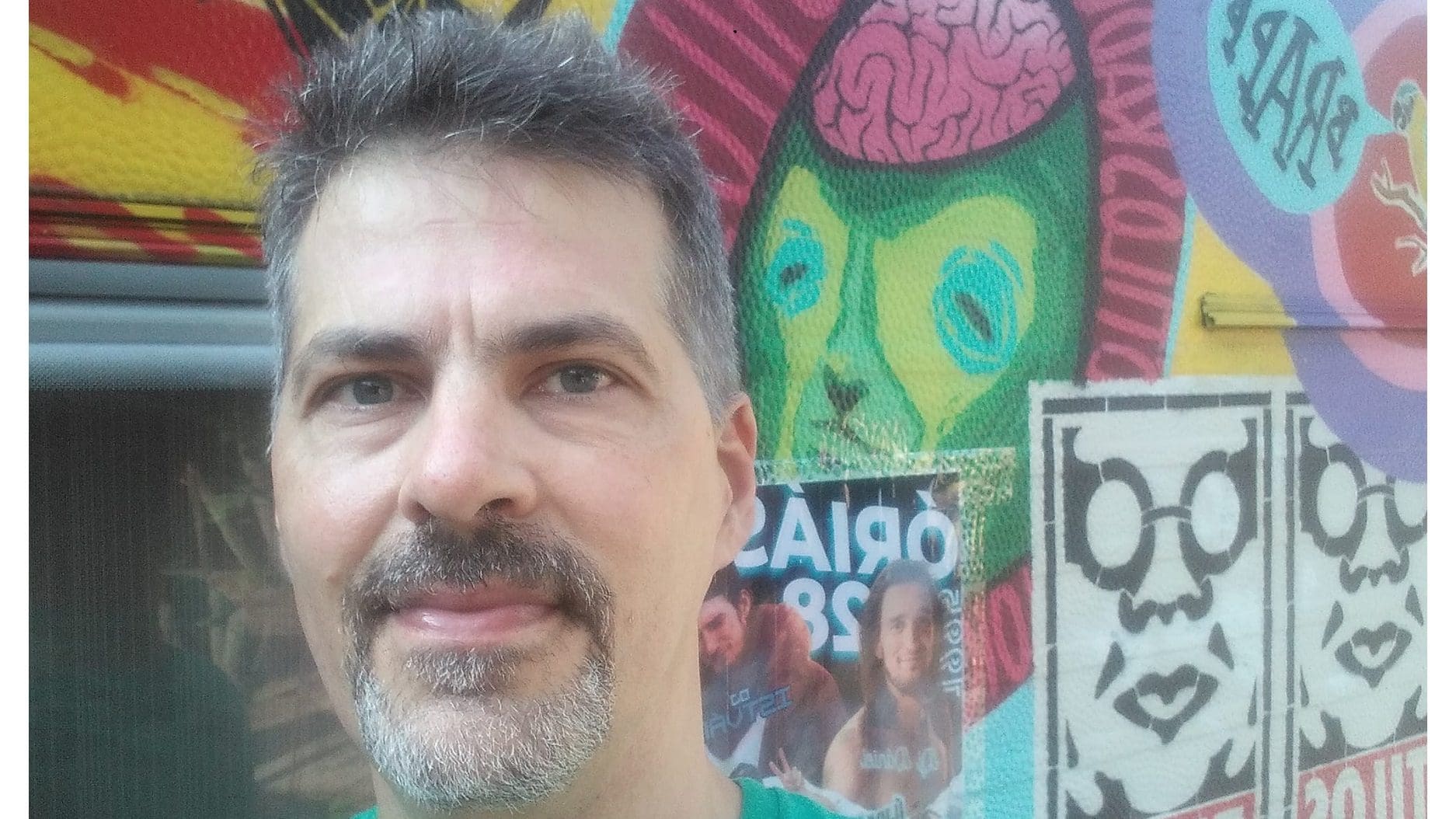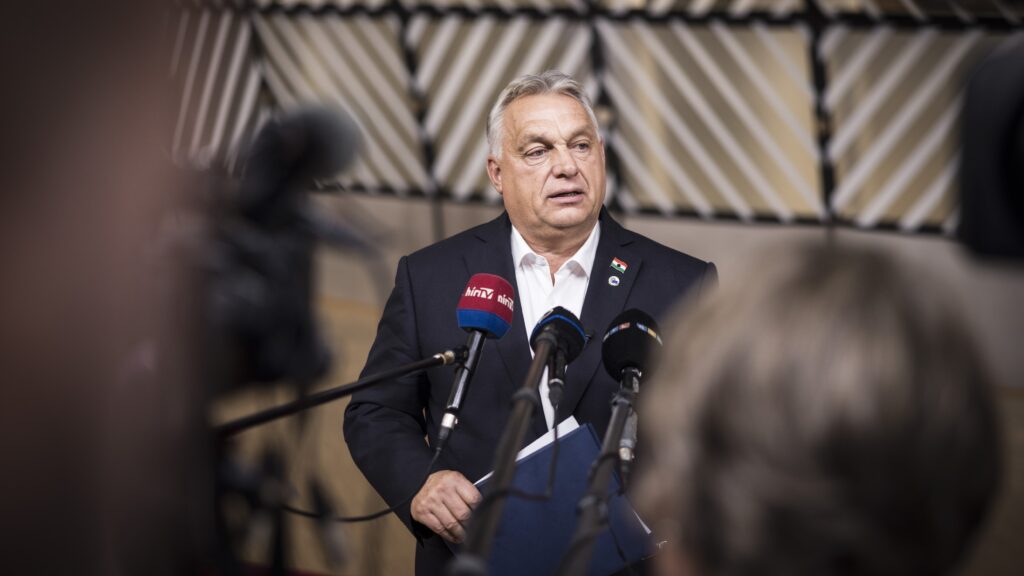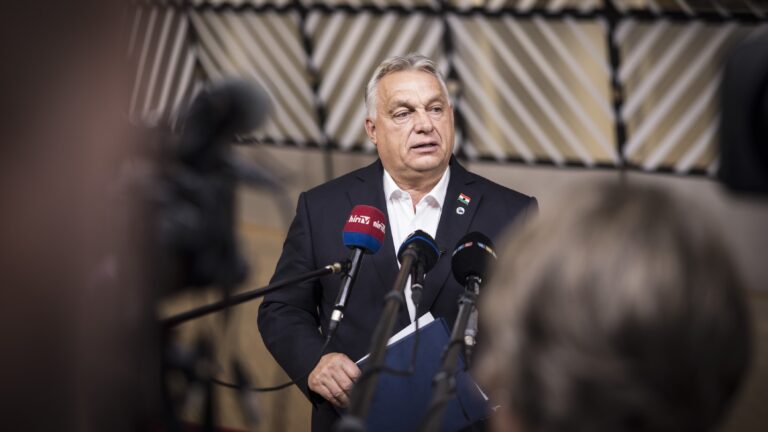Balázs Trautmann, the organiser behind the Kárpátaljai Sárkányellató (Transcarpathian Dragon Supplier) civil movement, spoke at the event of the MCC School of International Relations at MCC Feszt 2023 in Esztergom last week. The charity, run by Mr Trautman, collects cash and material donations that are then sent to the 68th Transcarpathian Special Battalion, fighting in the Ukrainian armed forces to repel the Russian invasion.
Mr Trautmann told the audience at MCC Feszt how this organisation came about. He was working as a military journalist, and by his trade, he was included in a closed Facebook group discussing the war in Ukraine. It was there, after the Transcarpathian Battalion successfully captured a Ukrainian village, that the idea of sending them some kind of aid was first raised by a user. While everyone agreed with the sentiment, it was eventually Trautmann who took it upon himself to actually take action.
His first step was to open a new bank account under his name, and share that account number with the group, soliciting donations. One of his friends reached out to Ferenc (Fedir) Sándor, a former college professor who enlisted in the Ukrainian military after the Russian invasion, who informed Mr Trautmann and his associates that what they needed was an EcoFlow River 2 portable battery, which cost about 350,000 HUF (around $1,000) at the time. In about a day, over 1 million HUF was sent to the account. Thus, they were able to purchase three batteries instead of one, which were successfully transferred to the Special Battalion, as proven by photos sent by Sándor.
While Mr Trautmann initially intended to only take care of the sending of the batteries, money kept being donated to his account. Thus, the ‘Dragon Supplier’ charity kept going.
To date, it has raised over 120 million HUF (around $340,000), of which 96 million HUF has been spent, and another 24 million is still on the account, waiting to be put to good use. The group’s Facebook page can boast 5,100 followers.
After the batteries, the Transcarpathian soldiers’ next ‘order’ was winter clothes, which they promptly received. First aid equipment, generators, drones, and food items were also offered by the generous Hungarian donors in which were also very much welcome by the men fighting on the front.
Mr Trautmann also called his charity ‘the most transparent organisation in Hungary’, pointing out that he publicly shares his account balance through bank statements in the Facebook group daily. He does all this as well as all other work that is required to run a charity like that pro bono, while also working full-time.
He went on to point out that, by Hungarian law, they are prohibited from sending any military equipment to Ukraine, a regulation they carefully abide by.
Another thing Mr Trautmann stressed about his group is that
they are not willing to engage in any politics, be it domestic or international,
and they are not supported by any political organisation. As he put it, ‘it’s not our job to change people’s opinions, it’s not our job to change the public opinion in Hungary’.
He also said that, so far, they have been spared from a large volume of negative comments, which he attributes to the fact that they are supporting the Battalion in the Ukrainian Army with a large number of ethnic Hungarian soldiers. Referring to Fedir Sándor’s estimation, he told the audience that there are currently a total of 350–370 ethnic Hungarian soldiers serving in the Ukrainian armed forces.
About the ethnic tensions within the army, Mr Trautmann had this to say:
‘In war, in the trenches, you really don’t care what nationality your fellow soldier is. Because if you don’t work together, if you don’t pay attention, you die. This makes ethnic discrimination rather unnecessary. They are soldiers at war, they really are fighting to defend Ukraine’s borders and sovereignty. I haven’t been told that there is no tension between anyone ever, that would be hard to imagine, and wouldn’t work…
However,
they [the ethnic Hungarian soldiers] do receive appreciation, because they have a reputation of being good fighters, they are quite determined folks.’
According to Balázs Trautmann, the fighting spirit is strong among the men and women serving in the Ukrainian military, among ethnic Hungarians, Ukrainians, and other nationalities as well. They believe they can achieve victory, which, still according to Mr Trautmann, would mean the restoration of the 2011 borders for them.
Mr Trautmann went on to say that he intends to keep his charity running even after the war ends, possibly getting involved in demining or caring for injured soldiers. He is also toying with the idea of making his organisation a foundation and doing work there full-time, as that would make it easier to collaborate with companies.
Related articles:







